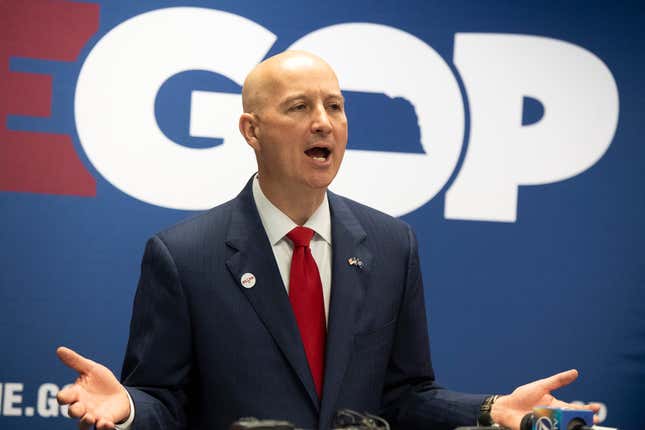Nebraska Republicans Drop Proposed Abortion Ban Because They Don’t Have the Votes
Lawmakers were three votes shy of passing a 12-week abortion ban—for now, at least.
AbortionPolitics

After the Supreme Court’s reversal of Roe v. Wade, conservative-controlled states have been weighing whether to hold costly special legislative sessions to further restrict or even outright ban abortion now that the federal guardrails have fallen. (The alternative is simply waiting until 2023 to pass their laws.) On Monday, Nebraska determined there isn’t enough of an appetite for government-forced births to call lawmakers back to the capitol, in a temporary reprieve for residents of the Midwest state.
Nebraska currently bans abortion after 20 weeks and has a slew of other restrictions, but Republican lawmakers had proposed a ban after 12 weeks, which is before the end of the first trimester. The state has a unicameral (one-body) legislature made up of 49 state senators and, as of Monday, only 30 state senators had signed on to the bill. The legislation would need 33 votes in order to break a filibuster.
-

-

-

-

-

-

-

-

-

-

-

-

-

-

-

-

-

-

-

-

-

-

-

-

-

-

-

-

-

-

-

-

-

-

-

-

-

-

-

-








































